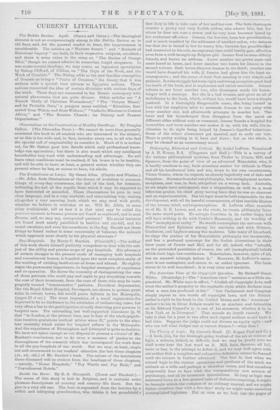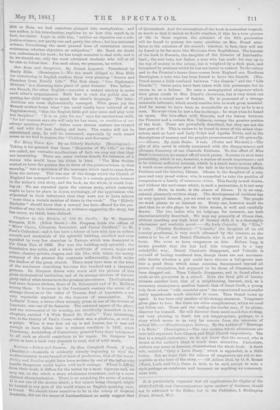Tho Theory of Logic. By Carveth Read. (C. Kagan Paul
and Co.) —A book, this, for time thorough-going student of the art or science of logic, a science, indeed, so difficult, that wo may be pretty sure wo shall never bear the last word on it. Mill, Bain, Spencer, all fail, more or less, in the attempt to define it, and wo may well agree with our nuthor that a complete and exhaustive definition cannot be framed until the science is further advanced. The fact is, that when we 'extend logic to the various operations and products of the mind, we embark on a wide and perhaps a sboreless ocean, and find ourselves perpetually face to face with the comparatively now science of psychology, and all its immature speculations. So long as logic was narrowed down to a few general rules of deductive reasoning, it might be brought within the compass of an ordinary manual, and we might flatter ourselves that with a few days' study we might make oureolvoa accomplished logicians. But as soon as we look into the pages of
Mill or Bain, wo find ourselves plunged into metaphysics ; and vur author, in his introduction, explains to us how this result is, in fact, inevitable. Logic is, with him, "neither an objective nor a sub- jective science, nor partly one and partly the other ; but is a universal science, formulating the most general laws of correlation among existences, whether objective or subjective." Mr. Read, we doubt not, understands his work; ho has tough material to deal with, end it is, we should say, only the most advanced students who will at all be able to follow him. For such alone, we presume, ho writes.



































 Previous page
Previous page